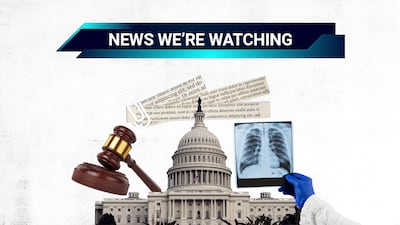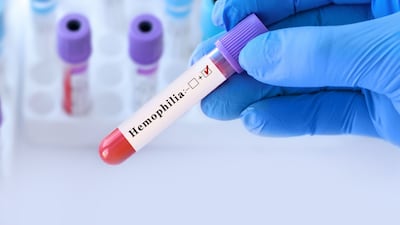Rare Diseases
A court order encompassing funding, drug pricing, clinical trials and overall policy implementation aspects is expected to bring about a paradigm shift in the treatment of rare diseases in India. Sarepta, Roche and Sanofi are among the key players that have been part of pricing discussions.
Cardiovascular and Renal Drugs Advisory Committee will consider whether open-label extension data from a randomized trial that failed its primary endpoint, along with a historical control comparison, are enough to support approval in the ultra-rare disease.
Under current law, drugs or biologics must receive rare pediatric disease designation before 1 October to be eligible for a priority review voucher. The sunset provisions have led to a spike in designation requests at the FDA and a push by pediatric and rare disease advocates for an extension, either through a continuing resolution or reauthorizing legislation.
A real-world evidence study also does not meet the regulatory standard for an adequate and well-controlled clinical investigation, the agency said. The FDA should allow the accelerated approval drug to remain available like other treatments that failed their confirmatory trials, Intercept said.
Merck & Co. won European Commission approval for Winrevair on top of other medicines for pulmonary arterial hypertension and expects an initial EU launch in Germany.
The company, in its new profitable era, is bringing in new leadership, with Amgen VP of medical affairs for rare diseases Greg Friberg and recently retired Roche Partnering head James Sabry.
This week, surgical robot maker Globus Medical got a warning letter from the US Food and Drug Administration; the FDA cleared a hemostatic gel to stop blood loss; Medicare issued a payment code for Medtronic’s renal denervation device; and more.
Amid a push for new incentives, the US FDA’s Kerry Jo Lee, associate director for rare diseases in the Center for Drug Evaluation and Research’s Office of New Drugs, said in an interview with the Pink Sheet that the tools ultra-rare sponsors need already are available.
Bluebird, Vertex and Sarepta are starting to see some commercial gene therapy traction and expect momentum to pick up in the second half, while hemophilia remains a challenging area.
Pink Sheet reporter and editors discuss former Surgeon General Jerome Adams’ views on how the FDA can better ensure clinical trial diversity, questions about approving a new drug that would be used with a standard of care regimen that is off-label, and the agency beginning to schedule fully in-person advisory committee meetings.
Determining the efficacy of arimoclomol alone in Niemann-Pick disease type C was challenging because most study subjects also received miglustat, an off-label drug in the US. An FDA official said panelists should assess arimoclomol’s efficacy as it was studied in the pivotal trial.
The pivotal trial results, along with other data, support a conclusion of efficacy for Niemann-Pick disease type C, but nonclinical data are weak and cannot serve as confirmatory evidence for a single trial, the advisory committee majority said.
Overreliance on “problematic” trials while overlooking the value of real-world evidence could affect the development of other rare disease treatments, according to Advanz’s CEO.
The US FDA’s Genetic Metabolic Diseases Advisory Committee will comprise three regular voting members and 13 temporary members, including some adcomm veterans, when it reviews Zevra Denmark’s arimoclomol for Niemann-Pick disease type C.
High patient expectations also drove Telethon’s decision to bring forward its marketing authorization application plans for its ultra rare disease gene therapy, etuvetidigene autotemcel.
The US FDA seeks input on the validity of the clinical outcome scale used in the sole pivotal trial, whether treatment benefit can be ascertained, and the robustness of the confirmatory evidence in Niemann-Pick disease type C.
The Milan-based drugmaker, which is reportedly attracting attention from private equity firms, has put in a strong performance in the first half of the year, helped by a strong showing for its rare disease franchises.
Editors from the Pink Sheet and Medtech Insight discuss the retirement of Jeff Shuren, PBM executives again appear unscathed after another Capitol Hill appearance, and the growing push to ensure the FDA’s rare pediatric disease priority review voucher program is renewed.
As the reauthorization deadline nears, CDER and CBER leaders stressed that sunsetting the program would hurt pediatric rare disease development, while endorsing a new Democrat-proposed stick for rare disease research.
The company’s giroctocogene fitelparvovec, partnered with Sangamo, could compete with BioMarin’s hemophilia A gene therapy Roctavian, but longer-term data may be needed.
ADVERTISEMENT



















